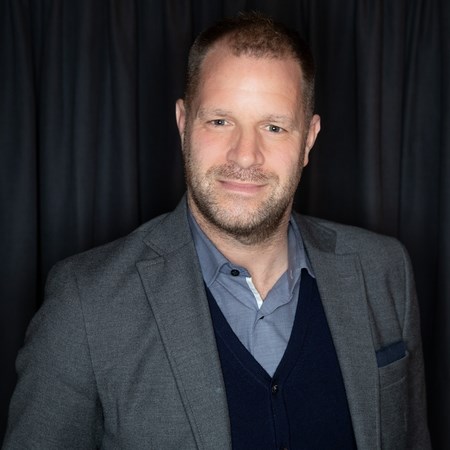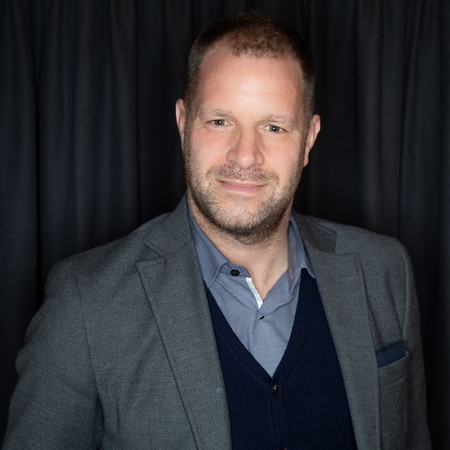Finding learning in unexpected places: Part five

- 03 August 2020
Being a modern marketer means you never stop learning. Scott Allen, global marketing development & strategy director at Microsoft, who featured in Catalyst magazine’s roundtable on embedding behavioural change last year, says that being open to reinvention has played an integral role in his success as a marketing leader
It’s easy to recognise that you need to stay up to date as a marketer in a rapidly changing world. What is undoubtedly the greater challenge is knowing what learning will work for you. With an inevitable economic downturn predicted as the coronavirus pandemic wears on, finding an answer to this conundrum has never been more pressing as marketers around the world fight to demonstrate their value.
This year, the Chartered Institute of Marketing (CIM) announced significant changes to our Chartered Marketer status that will allow more marketers than ever before to gain recognition by investing in continuing professional development (CPD). In this final instalment of our article series, hear from marketers at varying stages of their career on why learning is a priority – and how it can often be found in unexpected places. If you missed the first four parts of this series, featuring marketing leaders such as TSB’s Pete Markey, catch up here.
Scott Allen, global marketing development & strategy director, Microsoft
Scott Allen is what you might call a marketing success story. Having started as a marketing assistant straight out of university, he now oversees the development of marketing strategy at Microsoft with a focus on transformation. This is apt, perhaps, considering the secret to his success: don’t be afraid to reinvent yourself.



“I’ve reinvented myself, my skills, my approach, at least four or five times in my career to date, and it never stops.” This appetite for change is mainly driven by the ever-evolving role of marketing as a critical business function, Allen shares: “Before, marketing’s efforts were really focused on the start of the customer journey. Now we’re expected to help win the customers, and then, when the customer is won, keep working with them to build loyalty and ensure future purchases.”
This an issue that isn’t unique to marketing, Allen admits, but marketing’s rate of change is what sets it apart from other industries. This requires an agile approach to learning from those on the front line, which is an ethos that Allen himself has internalised: “I’ve felt a number of years back that I needed as a marketer to understand the different transformation stages that we were going through. I always say, if I did marketing like I did marketing 20 years ago, I would be a dinosaur – and I certainly would not be working at Microsoft!”
The importance of unlearning
The ability to be this self-reflective on one’s own abilities comes in the form of something Allen calls ‘unlearning’. He believes that unlearning can be as important to progressing in your career as actively learning. “Look, we all get into bad habits. If you carry on with those, that’s not effective for you or anyone. But it’s not an easy thing. You can’t just stop your bad habit; you have to actively unlearn it.
“For example, I used to be the person that jumped into an email trail when someone made a form of attack or I disagreed with a comment, then I regretted it a few days later. To unlearn that behaviour, the next time an email came in that got me angry, I would walk away, have a think about it, leave it overnight, or wait for someone else to respond first. As a result, I’m much more balanced in deciding when to push a point and when to take a learning moment.”
This is particularly poignant for marketers who must adapt to and adopt new technologies at breakneck speed to streamline efficiencies, which can sometimes mean ripping up the rule book and trying something entirely new. Allen shares that he has seen most rapid change in the last five years on the side of marketing he likens to science: “For example, the financial metrics, how does marketing support business performance? How do you leverage the massive martech landscape that is out there, such as automation tools, SEO, web production?” The advent of new roles to utilise these technologies has not eased the need to understand them, Allen believes. “Even if you’re not the head of web production, you need to understand how it fits into your overall marketing mix, otherwise you won’t be effective.”
The principle of ‘exec maturity’
That’s not to say that learning should be limited to technological nous. As you progress, soft skills become more important, Allen shares, in a habit he calls ‘exec maturity’. “As you go along, you have to be more mature at an executive level. You have to read situations, do the right thing, develop people and management skills.”
These behaviours undoubtedly develop over time, but that’s not to say you should wait to progress to start working on them, he implores. “Even if you’re not an official manager, at Microsoft we make sure you can lead without authority. I can lead a group of people who may not report to me, but I have to get to the end goal – if I can’t lead them without having authority over them, then I’m not going to succeed.” These skills are no longer a nice-to-have, Allen believes; they can have a real impact on your ability to move up: “I’ve seen people over my career who are not as good at influencing, and they don’t progress.”
Make learning an energising experience
Learning comes in more forms now than it ever has done, particularly with the advent of virtual and digital experiences in the last six months to compensate for the face-to-face interactions that we have lost. For Allen, the method of learning you choose plays a crucial role in its ability to help you upskill. Particularly, he shares, when you know what your motivations are. “I make sure I choose a method of learning that gives me energy, rather than saps energy,” he advises. “For example, if reading articles doesn’t appeal to you, don’t read articles, try to find videos or infographics. If you’re more about reading detail, read long form, not graphics. If you’re a people person, look for opportunities to interact in a group setting.”
Allen shares that his preferred learning method, perhaps unsurprisingly, is based in digital. “I read lots of relevant articles and watch videos, that’s how I how I really keep track of stuff that’s really going on. I love LinkedIn, I love Twitter; they are my two key sources.” Whilst this may seem a convenient and resource-light way to learn, setting clear parameters is key, Allen admits. “You must spend a bit of time determining how that information comes to you. You could go online and get swamped by amount of content on LinkedIn, so be clear on the type of people you follow. Are they going to be giving you the types of information that you want?” Setting up alerts can also help marketers to “filter out the relevance vs the noise.”
Taking an active role
No matter what your area of focus for learning is, Allen has one clear piece of advice: be an active participant, not a passive participant. For time-poor marketers, this requires an extra level of discipline. “It’s easy to put learning into the background and just rely on on-the-job learning, because you’re always too busy. How many times have you said, I’ve got a really busy day today, I’m not going to go to webinar/roundtable/event? You must build both formal and informal learning into your structure, your week, your month, your year. If you don’t, you’ll always push it aside.”
This can cost you crucial learning moments, Allen shares: “There are so many things I have learnt from simply taking the time out to step out of the day job and actively participate.
“I remember I went to a course years ago, 20+ years ago, on building communications skills. I learned one simple tip: when you’re having a conversation with someone, make as much eye contact as possible to show how serious and focused you are. That’s lived with me all that time. I now make that an active part of any 1:1 conversation I’m having, as well as larger speaking engagements.”
Allen emphasises that when engaging with learning, marketers must be clear “where your gaps are.” This is something he lives and breathes in his day-to-day role: “I’m constantly looking at, where do I have a blind spot? How could I get over these? Who could help me do that? That’s why I’m so big on mentoring, be it peer to peer or senior. I’ve done a lot of work with CIM around mentoring and why it’s so important.” As a CIM member, you could get exclusive access to our prestigious mentoring programme to develop your skills. Find more on that here.
Be prepared to self-serve
Ultimately, Allen believes, “learning starts with you as a person. Your company can help and support you, but you have to have the discipline to want to learn.”
This can often mean that marketers have to start learning on a self-serve basis. Allen shares his experience of this: “Earlier on in my career, learning was thrown at me, in the form of courses or structured training. As time has moved on, and there’s the opportunity to learn outside of your job, you have to have it in yourself to want to go and learn beyond what your company is offering.”
This is particularly important for professionals in organisations that lack a robust learning and development structure. “If you rely on your company, you’re going to miss out compared to others that have taken the time to self-serve. You’ll ultimately miss learning opportunities.”
However, even in organisations such as this, Allen believes that the case for development can still be made. “Not everything costs money. Just because you’re not being offered it, doesn’t mean you shouldn’t ask,” he implores.
Getting started
Here are Scott’s top tips for getting started with personal development:
- Learning starts with you, 100%. You will get help from others but if you don’t start understanding what learning you need, you will fail.
- Be clear where your gaps are and where you need to learn more. You might also need to unlearn stuff. There could be things you’ve been doing for years that haven’t been effective, so you need to unlearn it.
- Make the time, even when you are really busy. Don’t use a full schedule as an excuse.
- Have a selection of methods by which you learn and try to prioritise approaches that give you energy.
- Get yourself a mentor, be it a peer mentor or a senior mentor, inside or out of your company. Mentors can help you with the learning gaps you’ve identified.
- Network with as many people as possible.
- Ask questions! Don’t think they’re dumb. They’re not. I love people that ask questions; they’re showing that they want to learn, rather than showing a weakness.
Looking to get started with your own personal development journey? It’s easier than you think to keep your learning up to date and start your path to becoming a Chartered Marketer via CIM’s CPD platform. Find out how.

Tags:
- 0 views

 FAQs
FAQs
 Log in
Log in
 MyCIM
MyCIM






